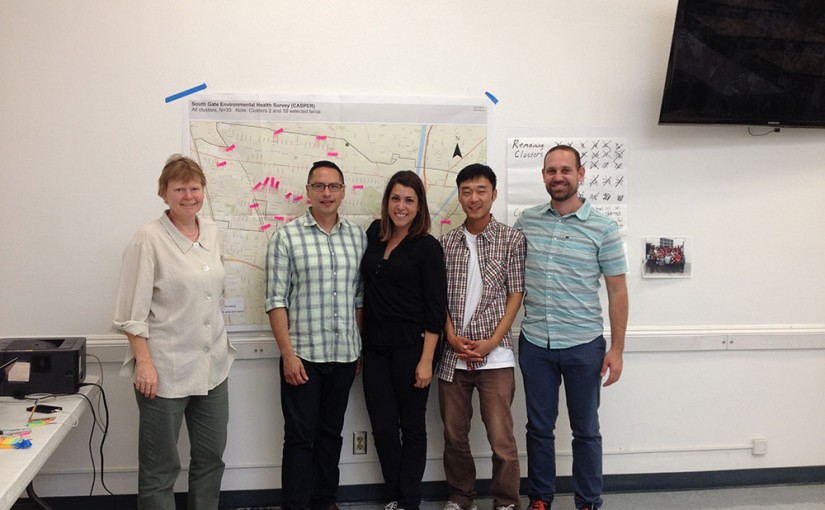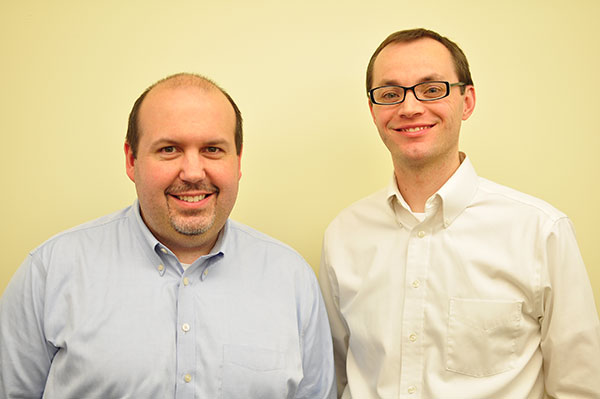Category: Sharing Our Stories
CASPER helps community identify environmental health needs in South Gate, CA

Are you concerned about how your neighborhood environment may affect your family’s health and safety? In the City of South Gate, California, residents had a chance to express those concerns through a process that brought state health department and City staff directly to their doors. Facing environmental health challenges The City of South Gate is Read More >
Posted on by Leave a commentSuccess Stories in Environmental Health

Did you know that your environment and your health are connected? The National Center for Environmental Health (NCEH) and the Agency for Toxic Substances and Disease Registry (ATSDR) protect and promote environmental health across the United States. Read More >
Posted on by Leave a commentTracking Program Maps Radon Exposure in Washington State

According to the U.S. Environmental Protection Agency (EPA), radon causes about 20,000 cases of lung cancer each year, making it the second leading cause of lung cancer after smoking. Radon can seep up from the ground and become trapped in buildings. The EPA recommends taking action to reduce radon in buildings that have a radon Read More >
Posted on by Leave a commentNewborn Screening: Lives Saved and Dances Danced

“It’s ok to have MCADD! You can do whatever you want!” says five-year-old Karina Martinez, happily. Background People with medium chain acyl-CoA dehydrogenase deficiency (MCADD) cannot burn fat for energy. Our bodies rely on fat for energy when we don’t eat for a while, such as when we miss a meal, or when we sleep. Read More >
Posted on by Leave a commentEnvironmental Information for Everyone

Our coworkers at CDC’s Environmental Public Health Tracking Program (Tracking Program) come from a variety of disciplines and backgrounds. They include epidemiologists, statisticians, database developers, contract specialists, health communicators, and more. If you look closer at the people within those specialties, you will find an even wider array of skills. Read More >
Posted on by Leave a commentVoices from the Field featuring Candis Hunter
In this NCEH/ATSDR blog series titled “Voices from the Field,” readers gain first-hand accounts of NCEH/ATSDR staff experiences working in communities to protect public health. This post features LCDR Candis M. Hunter, a project officer and environmental epidemiologist in the Division of Toxicology and Human Health Sciences, Environmental Epidemiology Branch. Read on to learn more Read More >
Posted on by 2 CommentsHealth Impact Assessment in Transportation Planning

It’s more than Safety Southeast McLoughlin Boulevard (Oregon 99E), in the northwestern corner of Oregon’s Clackamas County, was designed primarily for motor vehicle traffic rather than pedestrian traffic to its auto-oriented businesses and shopping areas. McLoughlin Boulevard can be an unsafe and inhospitable environment for pedestrians and bicyclists. Not surprisingly, the local population has higher-than-county-average Read More >
Posted on by 2 CommentsHCDI Influences Billion Dollar Spending

CDC’s Healthy Community Design Initiative (HCDI) is a key source of federal expertise to help states and communities integrate health considerations into transportation and community planning decisions. As part of a pilot project with Nashville, Tennessee, HCDI is influencing how billions of dollars of transportation spending will occur. Keep reading to learn more about how Read More >
Posted on by Leave a commentVoices from the Field: Susan McBreairty
NCEH/ATSDR’s blog series titled “Voices from the Field” gives readers first-hand accounts of NCEH/ATSDR staff experiences working in communities to protect public health. This post features NCEH/ATSDR Health Communication Specialist, Susan McBreairty. Read on to learn how Susan helped facilitate communication technical support for the CDC/Liberia Ebola response. Off to Liberia! When people ask me Read More >
Posted on by Leave a commentSearching for E. coli
It is 2006 and a woman lies in a hospital room suffering from severe cramps and vomiting. Her doctor has just told her that she has an Escherichia coli O157:H7 (commonly called E. coli) infection, a bacterial infection that causes serious stomach and intestinal distress and is sometimes fatal, especially in children and the elderly. Read More >
Posted on by Leave a comment
